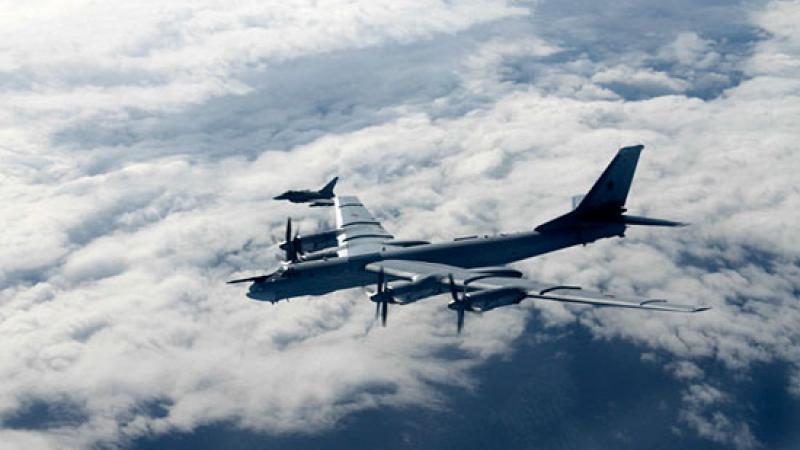Ex-military are miscast as dangerous in wake of Capitol riot, veterans say
"Veterans do not wish to overthrow the country," one former paratrooper said.
In light of claims that American veterans used their military training to plan the Jan. 6 mayhem at the U.S. Capitol, former service members say they fear that veterans overall have been miscast — for political reasons, or to be used as scapegoats.
The veterans shared their concerns and views on the topic this week in phone calls and messages with Just the News.
"They always blame veterans for violence, while I would make a case that vets are more responsible for heroic acts than the general public," said Army veteran Timothy Blinkhorn.
"It seems as though veterans are used as political pawns," said veteran Steve Oshana. "If they need votes, they love vets. If they need votes they demonize vets."
In the aftermath of the Jan. 6 Capitol breach, some media reports highlighted a group of helmet-wearing men marching in a supposed "Ranger File" combat formation. "It was a chilling sign that many at the vanguard of the mob that stormed the seat of American democracy either had military training or were trained by those who did," reported the Associated Press, without noting that the men also could have learned the formation from watching YouTube videos.
The true chilling sign, one former Ranger told Just the News, was the "breathless scary tone" of the news report.
"No one used military training in the Jan. 6th incident," said former paratrooper Ron Ledford, who noted: "Veterans do not wish to overthrow the country."
"Blaming all vets for that mess is beyond insane," said veteran Matthew Robinson.
Veterans did take part in the breach, officials said. In January, the Justice Department filed charges against a number of people who included former members of the military. Among them are Marine Corps veteran Christopher Kuehn and Navy veteran Thomas Caldwell, who — along with two cohorts — was charged with conspiracy and other violations.
Charging documents against the 66-year-old Caldwell portray him as a leader of the Oath Keepers organization.
"Though the Oath Keepers will accept anyone as members, what differentiates them from other anti-government groups is their explicit focus on recruiting current and former military, law enforcement and first responder personnel," an FBI special agent wrote in a Jan. 19 complaint. "The organization's name alludes to the oath sworn by members of the military and police to defend the Constitution 'from all enemies, foreign and domestic.'"
Messages attributed to Caldwell and his co-defendants show militaristic language, but don't necessarily reveal military expertise in how to mount an assault. According to the Navy, Caldwell retired after 19 years as an intelligence officer in the Navy Reserve. The post likely would have placed him in a desk job, defense insiders say — and yet, in media reports, he is portrayed as having put his military training to violent misuse.
The portrayals feed into what veterans say is only partially accurate information.
"Veterans, like all other members of the general public, are not perfect," said former military police officer Cameron King. "If they were, there wouldn't be a need for Military Police. That said, I would love to see video of the veterans using their training in any other way but to render assistance to the injured and overcome."
The few ex-military people who engaged in violence were "lost souls," said veteran Sharon Roszak Gonwa, who noted that the vast majority "will still protect their country before themselves even though their country turns its back on them all the time."
For some, the notion that veterans used their military training in order to breach the Capitol harkens to earlier times, when veterans caught the brunt of Vietnam-era antiwar sentiment. In the 1970s and 1980s, for example, popular culture — including films such as "First Blood" and "Platoon" — often portrayed military personnel as dangerous, or as damaged goods.
One former Army officer who has worked extensively in veterans' issues said he fears that vets and the military in general will come to be seen as targets for "reprogramming."
Convicted lawbreakers should face consequences of their actions, including prison time and losing their military pensions, said Army veteran Fred Waters. Others dismissed the notion that their fellows took part in an organized conspiracy to breach the Capitol.
"There were probably a few individual veterans involved (like the guy who was caught on film asking the cops why they were allowing themselves to be overrun), but there was no coordinated active veteran activity on January 6th," veteran Carl Abrams said.
For some, it was a point of pride.
"If veterans had been involved, then the goals would have been achieved," said former soldier Melinda Lawson.
"If they would have put their training to use, they may still have control of the Capitol, and I am not sure the Capitol Police or the Guard could have retaken it anytime soon," echoed veteran Robert Kelly.
Accused conspirator Thomas Caldwell, the ex-Navy man, meanwhile remains behind bars awaiting his next court appearance.
Caldwell's attorney, Thomas Pflochan, did not reply to requests for comment.
















